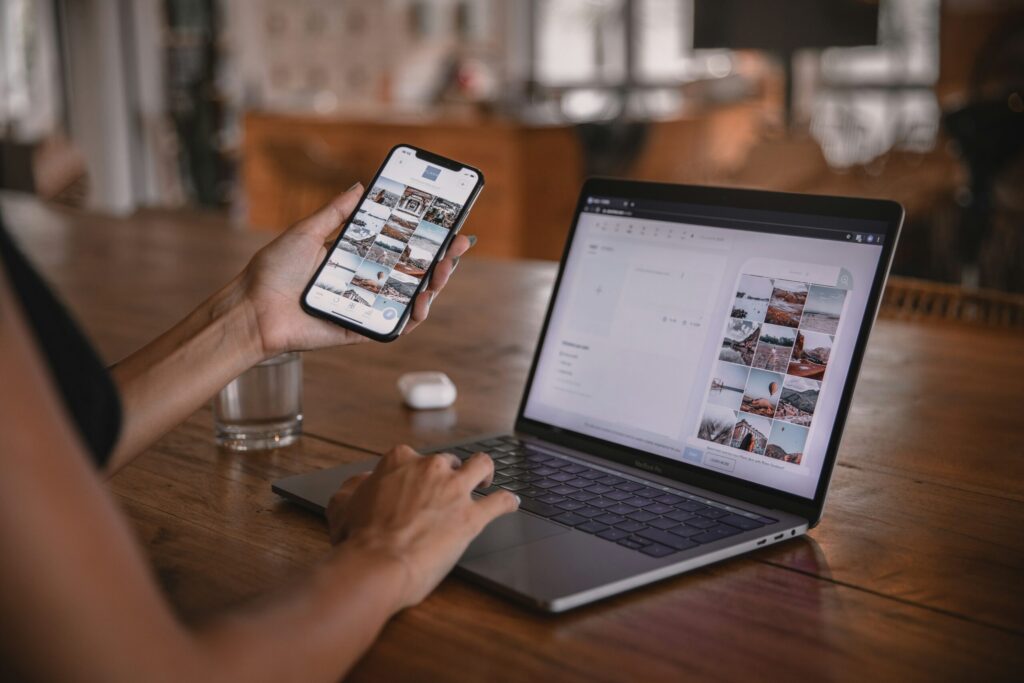Why Smartphones will Never Fully Replace Laptops
Smartphones have become commonplace. Users across every age, gender, and profession own one these days. It is seen as a step above conventional desktops or laptops. In fact, a smartphone has all the functions of a laptop while occupying less space. When smartphones hit the market, the initial reaction of the masses was that the … Continued
Smartphones have become commonplace. Users across every age, gender, and profession own one these days. It is seen as a step above conventional desktops or laptops. In fact, a smartphone has all the functions of a laptop while occupying less space. When smartphones hit the market, the initial reaction of the masses was that the laptop days are numbered but that doesn’t seem to be the case.
Both gadgets have their own distinct utility for users – leading to the invention of tablets and ebooks to fill this gap. While the laptop is considered very official, a sleek smartphone is seen as a symbol of upward mobility in profession or business. This debate about smartphones taking over the place of laptops has been going on with diverging views. But before we can draw a conclusion to this dialogue we must evaluate the pros and cons of both gadgets- laptops and smartphones.

Size and Productivity
If convenience is the criterion, a laptop scores over a smartphone. Talking of size, we mean the size of the screen. Normally a laptop screen is 14 or 16 inches while that of a regular smartphone is usually 6 inches. It is more convenient to do office work on a laptop as the visibility is almost always better on its larger screen. Typing out long documents or making tables is far easier on a laptop. Imagine how difficult it is to type a lengthy document on a smartphone. Productivity suffers as routine tasks eat away precious time. The utility of a smartphone is more if we are sending out or receiving short messages.
Battery Life Matters
Despite advancements in technology and the introduction of high-powered batteries for smartphones, the average life of a smartphone battery is far too low than that of a conventional laptop. No one wants to run out of battery while in the middle of work. This may happen if one depends on your smartphone for carrying out office work. Constant charging of batteries will harm the life of the battery and affect the functioning of the smartphone as well.
On the contrary, a laptop battery has a longer life, discharges slowly since the number of apps can be restricted to a minimum. A laptop assures continuous working – something vital for office work. It is always safe to choose a device that has a longer battery life in order to enhance productivity and efficiency at work.

Storage Space
One of the tipping points in favor of a laptop over a smartphone is the issue of storage space. Office work demands tons of storage space to stack files, folders, drawings, email conversations, and confidential documents in digital form. Normally, laptops have much larger disk space than the best smartphones available in the market. It would amount to overloading a smartphone if all the office files are stored in it. If done, its speed, efficiency, and dependability come down substantially affecting the flow of work and productivity.
Limited Functions
Though we live in the age of responsive websites, several websites behave differently when it comes to laptops and smartphones. Even most prominent social media sites present different screens and choices of operations to smartphone users as against desktop version users. The web app versions tend to offer a better user experience than their mobile app counterparts. This is another major drawback smartphone users face.
We are unsure of how developments in the technology field evolve but at this point in time, we are in no position to replace our laptops just yet and switch over 100 percent to smartphones.











